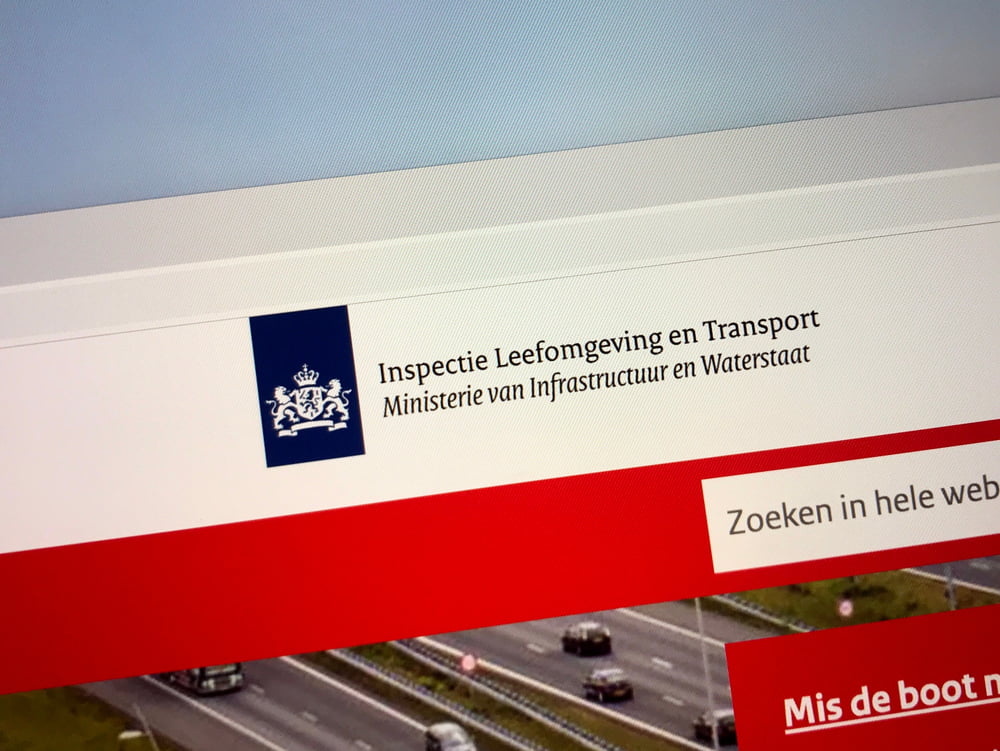As of 1 February, the Human Environment and Transport Inspectorate (ILT) has tightened enforcement when driving and rest times in road transport are exceeded and in the case of fraud with the tachograph. The reason for the tightening is that the ILT sees that entrepreneurs and drivers continue to violate the law and are constantly looking for other forms and ways of fraud. From now on, road checks can be fined over a longer period if serious violations of driving and rest times are observed. This considerably increases the chance of getting caught during roadside checks. In addition, this is in line with more harmonized enforcement in European member states. In other European countries, looking back in time during roadside checks is already common. Tampering with the tachograph can result in a fine for both the transport company and the truck driver.
Driving and rest times control
Truck and bus drivers are obliged to take a daily rest of 11 consecutive hours and a weekly rest of an average of 1 hours once a week. The ILT checks compliance with the rules for driving and rest times on the basis of the data stored on the tachograph. Until now, the ILT has looked at the violations from the last daily rest period and has only been fined for violations of the driving and rest times in the act. Since 45 February, the ILT has fined serious violations of driving and rest times from the last weekly rest period. If a driver has committed a serious offense during this period, such as a much too short daily rest period, the company runs the risk of being fined for this.
Hans Drijer, senior road transport inspector: “Previously, we looked back a maximum of one day during road checks for violations. During company inspections, we assess compliance with driving and rest times over a longer period. But because the chances of being caught red-handed during roadside checks are very small, offenders in some cases got away with - sometimes very serious - offenses. By now also looking further back in time during roadside checks and enforcing / fining, we are also making enforcement within Europe more uniform. ”
Driver card withdrawal
A manipulated tachograph causes the driving and rest times to be recorded incorrectly on the driver card. If tampering with the tachograph is discovered during a roadside check, both the transport company and the driver risk a fine (€ 10.375 and € 1.500 respectively). However, it appears that this is not sufficient to eradicate tachograph fraud. Therefore, drivers driving a truck with a manipulated tachograph now run the risk of losing their driver card if it is discovered in the act that technical manipulation is taking place with the tachograph. Withdrawal of the driver card means that the driver is temporarily prohibited from driving a truck / bus with a digital tachograph.
Company inspections
During a company inspection, a fine is imposed on the employer in the event of fraud. Experience shows that drivers are often not aware of these fines and do not feel responsible for the violations. “That has changed on 1 February,” says Drijer. “If we find that the driver had a clear role or performed an action that made it possible to manipulate with a driver card or the tachograph, the driver also risks a fine of € 1.500. The ILT expects that the tightening of enforcement will reduce the willingness of drivers to cooperate in fraud. And that at the same time they will be more willing to report fraud to the ILT. This not only benefits road safety. It is also good for a level playing field (fair competition) and ultimately contributes to good working conditions for the driver.
Fair, safe and healthy
ILT supervision focuses on fair and safe road transport. The ILT structurally enforces the rules for working, driving and rest times with the aim of: combating unfair competition in the transport sector, guaranteeing the safety, health and welfare of drivers and the safety of other road users. The tachograph registers driving and rest times, among other things, making it a means of complying with and supervising regulations. The ILT reports this on them website.


